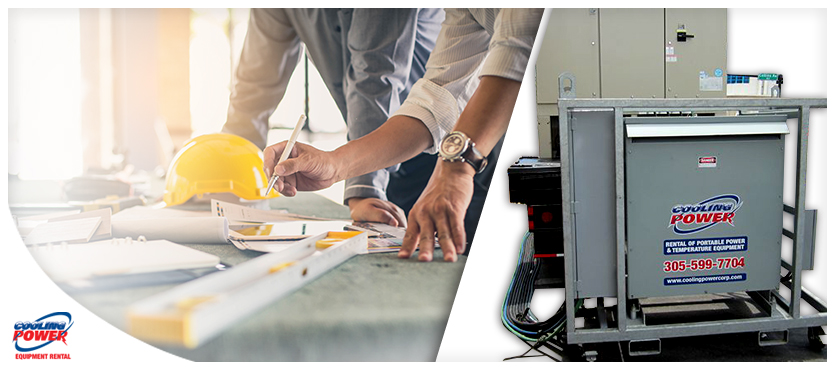In today’s fast-paced industrial landscape, having reliable power equipment is essential for businesses across various sectors. Whether you’re in construction, manufacturing, or any other industry, selecting the appropriate power equipment tailored to your specific needs is paramount. In this comprehensive guide, we will explore key factors to consider when choosing power equipment and delve into the best options for emergency situations and natural disasters.
Understanding Your Power Requirements
Before delving into the details of power equipment selection, it’s crucial to have a clear understanding of your business’s unique power requirements. Consider the following factors:
Power Capacity: Assess your business’s maximum power demand and ensure that the equipment you choose has the capacity to meet these demands. It’s wise to have a margin of safety to handle unexpected spikes in power usage.
Application: Determine the primary applications for which you need power equipment. Different industries have varying power needs, and your choice should align with your specific requirements.
Duration of Use: Consider whether the equipment will be continuously in use or primarily used as a backup power source during outages. This influences the type of equipment and its fuel efficiency.
Key Factors for Evaluating Power Equipment
Now, let’s explore the critical factors to consider when selecting power equipment for your business:
- Power Capacity: Ensure that the equipment you choose can comfortably handle your peak power demands. Having a buffer in power capacity can prevent overloads and system failures.
- Fuel Efficiency: Opt for power equipment that maximizes fuel efficiency. This not only reduces operating costs but also minimizes environmental impact. Consider the long-term savings associated with fuel-efficient models.
- Fuel Type: Choose the fuel type that aligns with your preferences and availability. Options include diesel, natural gas, propane, and electricity. Evaluate the pros and cons of each to determine the best fit for your needs.
- Maintenance Requirements: Regular maintenance is vital for ensuring the longevity and reliability of your power equipment. Assess the maintenance demands of the equipment you’re considering and ensure they match your capabilities.
- Noise Levels: Noise pollution can be a concern, especially in residential or urban areas. Select equipment that complies with noise regulations if necessary, and be mindful of the impact on your surroundings.
- Cost-Effectiveness: While upfront costs matter, consider the total cost of ownership, including fuel, maintenance, and potential repairs. A slightly higher upfront investment in a more efficient model can result in long-term cost savings.
Best Power Rental Options for Emergencies and Natural Disasters
In addition to meeting your day-to-day power needs, it’s crucial to have a plan for emergencies and natural disasters. Here are some of the best power rental options to consider for such situations:
- Generator Rentals: Portable generators are highly versatile and can provide immediate power during outages. They come in various sizes, making it easy to match the generator’s capacity with your emergency power requirements.
- Mobile Power Units: These units are designed for rapid deployment during emergencies. They often come equipped with multiple power outlets and can be a lifeline for critical operations.
- Load Banks: Load banks are used for testing and maintaining generators and power systems. They can also serve as temporary power sources during emergencies when connected to generators.
- Fuel Options: Ensure that your emergency power equipment has a reliable fuel source, such as diesel, propane, or natural gas. Consider fuel storage and backup fuel supplies to extend runtime during prolonged emergencies.
- Maintenance and Service Agreements: Establish maintenance and service agreements for your emergency power equipment to ensure they remain in optimal working condition when needed most.
Final Thoughts
In conclusion, selecting the appropriate power equipment for your business requires a thorough evaluation of factors such as power capacity, fuel efficiency, and cost-effectiveness. Additionally, having a well-thought-out plan for emergency and disaster situations is essential.
Cooling Power Corp is dedicated to helping businesses make informed decisions regarding their power equipment needs. Whether you require equipment for day-to-day operations or emergency situations, our wide range of industrial equipment rentals can meet your specific requirements. Contact us today to discuss how we can support your power equipment needs, ensuring your business runs smoothly and efficiently.

